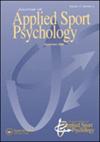Black Student-Athletes and racism pandemic: Building antiracist practices in athletics
IF 3.2
2区 心理学
Q2 HOSPITALITY, LEISURE, SPORT & TOURISM
引用次数: 1
Abstract
Abstract The year 2020 was filled with injustices, fear, and uncertainty that has disproportionately affected Black communities in the United States and abroad. From the unprecedented number of deaths inflicted by COVID-19, specifically on minority groups, to the horrific murders of Black citizens by those in positions of authority and power, the world was once again reminded that racism is still alive. Black student-athletes are among those enduring trauma that has been consistent over centuries and are contending with the chronic nature of systemic racism as it pertains to being a Black athlete within the world of athletics and their respective schools. Through grounded theory, researchers captured the lived experiences of 14 Black student-athletes through qualitative interviews to ensure that sports psychology practitioners and researchers are equipped with the correct resources, knowledge, and skills, to aid in the healing of Black student-athletes although also advocating for expedited social reform and representation within the realm of education, law enforcement, politics, and mental health services. Five key domains emerged from this study including Identity Development, Perception and Expectations, Mental Health, Privilege, and Systems. The authors offer best practices within each domain in an effort to develop anti-racist practices to be implemented within athletic institutions and beyond. Lay summary: Black student-athletes are faced with systemic racism within all the worlds they live in, and as it pertains to being an athlete of color within the National Collegiate Athletic Association (NCAA). Black student-athletes are also coping with major life stressors and, as such, this paper gathered the lived experiences of student-athletes identifying as Black and explored how they experienced support during their tenure as student-athletes in an attempt to establish anti-racist and supportive practices within athletic communities. Implications for practice Develop strategies for athletes to understand and evaluate their identity. Integrate anti-racist practices into large systems including implicit bias training, undoing racism, and privilege education. Create tools and visuals for athletes of color, illustrating the institution’s commitment to diversity, equity and inclusion.黑人学生运动员与种族主义疫情:在体育运动中建立反种族主义做法
2020年充满了不公、恐惧和不确定性,这对美国和海外的黑人社区产生了不成比例的影响。从2019冠状病毒病造成的前所未有的死亡人数,特别是少数群体的死亡人数,到当权者对黑人公民的可怕谋杀,世界再次被提醒,种族主义仍然存在。黑人学生运动员是几个世纪以来一直遭受创伤的人之一,他们正在与长期存在的系统性种族主义作斗争,因为这与作为一名黑人运动员在体育界和他们各自的学校中有关。通过扎实的理论,研究人员通过定性访谈捕捉了14名黑人学生运动员的生活经历,以确保运动心理学从业者和研究人员配备了正确的资源、知识和技能,以帮助黑人学生运动员康复,同时也倡导在教育、执法、政治和心理健康服务领域加快社会改革和代表性。从这项研究中出现了五个关键领域,包括身份发展、感知和期望、心理健康、特权和系统。作者在每个领域提供了最佳实践,以开发在体育机构内外实施的反种族主义实践。总结:黑人学生运动员在他们生活的所有世界中都面临着系统性的种族主义,因为它与全国大学体育协会(NCAA)的有色人种运动员有关。黑人学生运动员也在应对主要的生活压力,因此,本文收集了黑人学生运动员的生活经历,并探讨了他们在学生运动员任期内如何获得支持,试图在体育社区建立反种族主义和支持实践。为运动员制定策略,以理解和评估他们的身份。将反种族主义实践纳入包括隐性偏见培训、消除种族主义和特权教育在内的大系统。为有色人种运动员创造工具和视觉效果,说明该机构对多样性、公平和包容的承诺。
本文章由计算机程序翻译,如有差异,请以英文原文为准。
求助全文
约1分钟内获得全文
求助全文
来源期刊
CiteScore
6.90
自引率
9.40%
发文量
39
审稿时长
>12 weeks
期刊介绍:
The Journal of Applied Sport Psychology (JASP) is a refereed journal designed to significantly advance thought, theory, and research on applied aspects of sport and exercise psychology. Submissions such as experimental studies, qualitative research, correlational studies, case studies, position papers, critical reviews, theoretical developments specific to applied research conducted in sport and/or exercise settings, or having significant applied implications to sport and exercise, are appropriate content for the JASP. Please see the recent Editorial for further details on the aims and scope of the journal. JASP is a non-proprietary journal that is an official publication of the Association for Applied Sport Psychology (AASP). The purpose of AASP is to promote the development of psychological theory, research, and intervention strategies in sport and exercise psychology. The Journal is a direct benefit of membership in AASP and is received by its student and professional members. The publisher of the JASP is Taylor and Francis, Inc. of Philadelphia, PA.

 求助内容:
求助内容: 应助结果提醒方式:
应助结果提醒方式:


